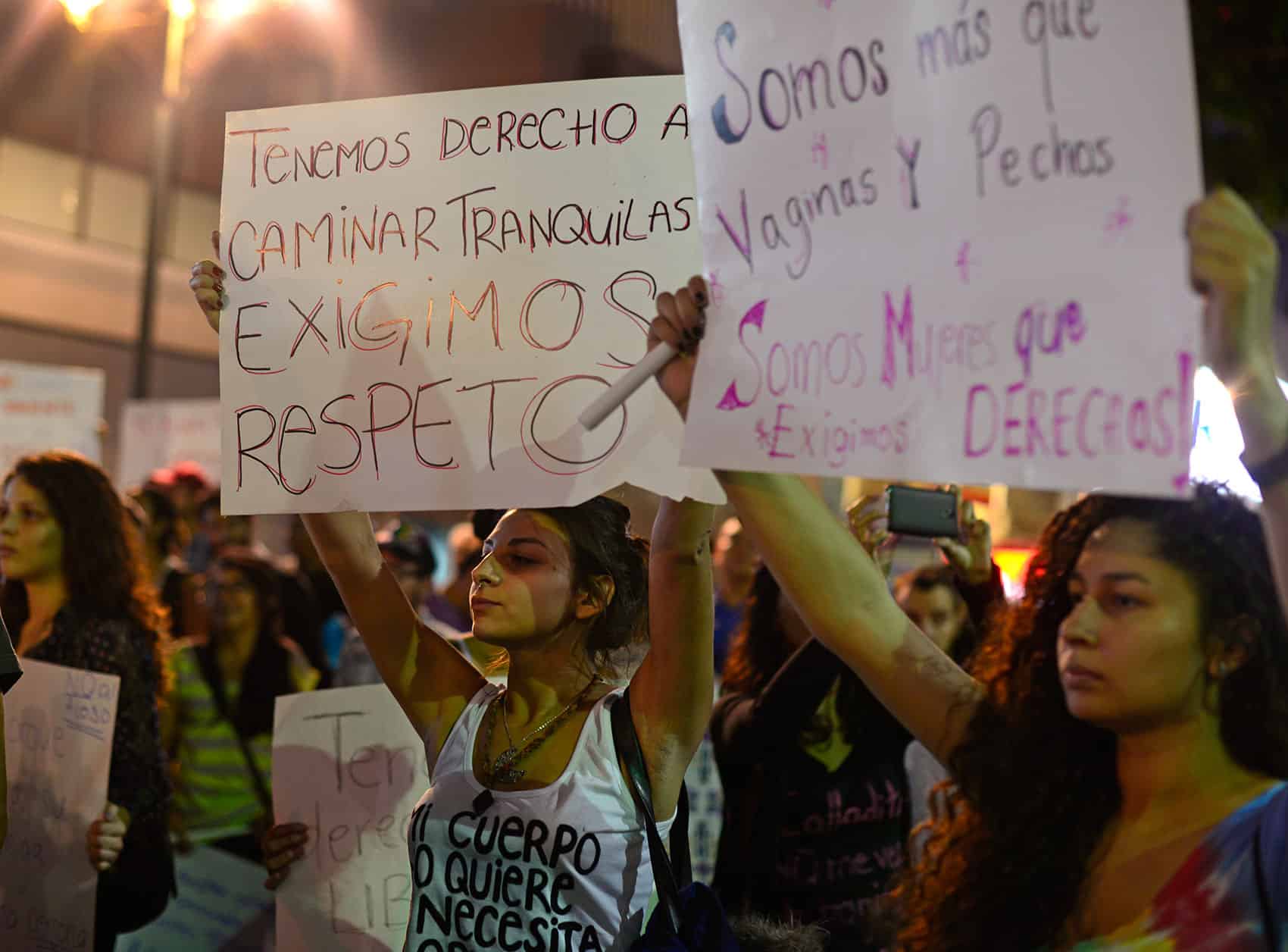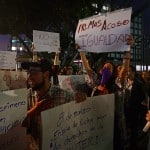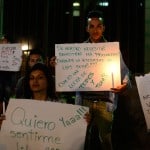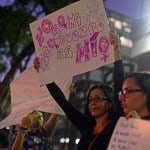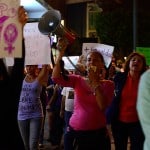Over 100 people on Tuesday evening marched along San José’s Central Avenue to protest the persistent sexual harassment of women – and sometimes men – in public places, including streets, sidewalks, parks and the workplace.
Dubbed “Las calles también son nuestras” – “The streets are ours, too” – the demonstration was convened by the National Women’s Institute (INAMU) as part of International Women’s Day.
Protesters gathered in front of the Central Bank in the center of Costa Rica’s capital, and at 6 p.m. they walked towards the Plaza de la Cultura chanting slogans and carrying signs.
“No means no. What part of that don’t you understand, the N or the O?” chanted protesters, along with, “My body, my choice,” and “No more!”
Members of several human rights and LGBT groups joined the protest.
Costa Rican President Luis Guillermo Solís, first lady Mercedes Peñas and the couple’s daughters joined demonstrators, along with Vice President Ana Helena Chacón and Women’s Issues Minister and INAMU President Alejandra Mora.
“I’m here to demand that women can walk and work peacefully in public spaces,” President Solís said. “We cannot tolerate more aggression. Violence is unacceptable.”
Recent cases
The demonstration took place two weeks after a video of a man punching a woman on the sidewalk in front of Calderón Guardia Hospital in San José went viral and prompted a criminal investigation.
Jennifer Sánchez, 25, told police that she stood up to the man after he began catcalling her on the street. The man reacted by kicking and punching her several times, until a bystander jumped in and stopped the attack.
The aggressor was arrested minutes later by police officers patrolling the area. The incident was recorded by a security camera from a nearby store and was posted on the Facebook profiles of several women’s rights groups.
See a video report of the incident by Noticias Repretel:
The victim of the attack was pregnant, and a physical examination the next day found the fetus had died. The Prosecutor’s Office is investigating Sánchez’s forensic and pregnancy tests to determine if the death was caused by the attack.
In a barbaric multiple slaying in Guanacaste last month, suspect Adrián Salmerón Silva killed a family of five, including three children, before fleeing to Nicaragua, where he was apprehended.
Last week, a woman in Puntarenas province reported another attack by a customer at her appliance store. A security video shows the man entering the store to pick up an appliance that was being repaired, and minutes later, the man is seeing entering the shop again to punch the woman at least three times.
One of the most widely known cases occurred last October, when 22-year-old Costa Rican Gerardo Cruz became a national hero after he posted a video to his Facebook page of a confrontation with a man who had been filming up a woman’s skirt with a smartphone.
Three days after posting the video, Cruz was stabbed and later died of a heart attack after remaining in the hospital for nearly a month.
Men can be victims, too
Most victims of street harassment and catcalling are overwhelmingly women. But men sometimes are victims, too.
A survey by the University of Costa Rica’s School of Statistics released in January found that 61.7 percent of women and 32.8 percent of men surveyed said they were victims of street sexual harassment in the past year. Both women and men cited catcalling, vulgar gestures, wolf-whistling and being groped.
Street harassment in Costa Rica is currently considered a misdemeanor, penalized under Article 392 of the country’s Penal Code. Those found guilty face only a monetary fine ranging from five to 30 days salary, a maximum of about $780.

